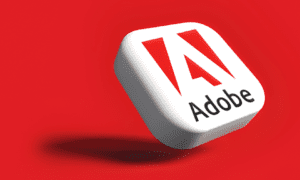It’s undeniable that we live in a world where productivity is the cornerstone of success. But we sometimes have too many loads on our shoulders that we find ourselves lacking.
Today, productivity tools can be a game changer in how you achieve your daily objectives. It does not matter whether you’re a student, professional, or entrepreneur, these apps provide you with necessary tools to alleviate stress and get more tasks done quickly.
So, if you’re wondering which productivity app is the best, read this article to discover the top 10 options you can always count on.
Top 10 Best Productivity Apps, Tools & Software
1. Spreading
The first productivity tool on our list is Spreading. This is an industry-leading productivity software that uses modern AI technology that focuses on document experience. It empowers users with any level of experience to transform code into writing docs, enhancing technical writing skills, and doing lots more without any hassle.
Pros
- Quickly create high-quality technical documentation for your project.
- Smart AI algorithm allows you to code with AI and easily switch between different coding languages.
- Facilitates smooth document management and creation of multiple websites.
Cons
- It does not support multiple languages.
- It can’t import existing documents in various formats.
2. Google DOCs
If you handle loads of documents regularly, Google Docs is one of the most reputable productivity tools that can come in handy for you. This tool gives you full control over all your documents (both PDF & Word). It does not matter whether you’re writing or editing. It also offers collaboration features that allow you to make changes, share documents, and collaborate in real time.
Pros
- Enabled seamless collaboration between team members.
- Built-in comment feature for highlighting and making notes about certain texts.
- Documents can be downloaded in various formats, including Word and PDF.
Cons
- The customization features could be better.
- You can’t use most features offline.
3. Todoist
Are you looking for an effective way to manage your daily to-do list? Todoist got your covered!
Just as the name suggests, Todoist productivity app enables you to keep track of your daily objectives based on various projects. Unlike your traditional to-do list apps, this app provides you with more rich features like collaboration tools and lots more for assigning and sharing to-do lists among your team members.
Pros
- Supports offline mode.
- Excellent collaboration features.
- Cross-platform support and syncing.
Cons
- It might be costly for some individuals.
- A lot of helpful features are not available to free users.
4. Calendly
Calendly is also a powerful resource when it comes to productivity tools to boost productivity. This tool helps you improve how you schedule meetings, saving you from back-and-forth emails.
With Calendly, you can easily schedule your meetings within a few seconds. All you just need is to sync your calendar with the app and you’ll be able to schedule meetings based on your preferences and availability.
Pros
- Supports up to 7 different languages.
- Extensive customization tools.
- Supports integration with other tools like Zoom, Microsoft Teams, etc.
Cons
- The Cost of subscription for larger teams is quite expensive.
- There have been reports from several users concerning privacy issues.
5. ClickUp
ClickUp is another app on our list that’s designed to help you manage projects. Although this productivity app does not make use of modern AI technology, it offers features that are easy to operate, enabling you and your team to quickly get used to the workflow without requiring any learning curve. This app can come in handy for development methodologies like Agile, Kanban, and Scrum.
Pros
- The free mode supports many robust features.
- Supports integration with more than 1000 tools.
- Cost of subscription is quite affordable.
Cons
- Some users might require a learning curve to easily navigate their way around the app.
- No project messaging board.
6. Evernote
Evernote is the go-to productivity app for for users looking to improve how they take note. It saves you the stress of writing notes, allowing you to jot your ideas and thoughts digitally in one place.
What’s more? Evernote is not limited to only texts. It can also be used to take photos of written notes and upload them to the app. And you can organize your texts and files in the notebook system.
Pros
- Smooth and intuitive user interface.
- Robust project management features.
- Offers customizable templates and workflow.
Cons
- It might not be a reliable choice for large enterprises.
- The premium plan is a bit expensive.
7. MindMeister
MindMeister is one of the best apps for productivity that facilitates digital mind mapping. This tool enables you to brainstorm ideas, visualize data, and plan projects in a more effective manner. And it boasts collaboration tools that enable teams to collaborate and share ideas.
Pros
- Built-in map themes.
- Easily customize map to your preference with colors, styles, formatting, and images.
- Supports cloud storage for storing data safely.
Cons
- The user interface could be better.
- You can’t use the app on a mobile device.
8. Hootsuite
Next on our list is Hootsuite. This social media management productivity tool enables you to schedule posts and campaigns across different social media platforms.
With Hootsuite, you can increase productivity across different social media platforms. It also supports features that allows you to create meaningful connections with your audience easily.
Pros
- Excellent free version.
- Supports more than 150 apps in its App Discovery Store.
- Comprehensive social media customization tools.
Cons
- It does not support advanced automation features.
- No low-tier packages.
9. Trello
Trello is a popular project management and collaboration tool that uses a visual board system to help individuals and teams organize tasks and projects.
This is one of the best productivity tools that allows you to organize different projects, track various stages, invite team members to board to collaborate, and do lots more. Thanks to its simple interface, you don’t necessarily need to be tech-savvy to navigate your way around its interface.
Pros
- Simple and intuitive user interface.
- Excellent free plan.
- Supports calender timeline for easier tracking of projects.
Cons
- It’s not easy to track multiple project at once using Trello.
- It’s not an ideal choice for project managers.
10. Slack
Slack is another excellent productivity app that’s used for project management in organizations. The app facilitates communication and collaboration within teams and organizations. It allows you to bring your team together using rich features that are easy to use. It also supports the integration of other office and collaboration tools for seamless operations.
Pros
- Enhanced collaboration tools.
- Allows integration with other third-party apps.
- Advanced search function.
Cons
- You can’t do anything on the app without internet connection.
- Some users reports security and privacy concerns.
Conclusion
The realm of productivity apps and tools has undergone a remarkable evolution, providing individuals and businesses with an arsenal of resources to enhance efficiency and time management. From project management platforms like Trello to note-taking apps like Evernote, these tools cater to various needs and preferences. All you just need is to choose the productivity app that suits your requirements.



































